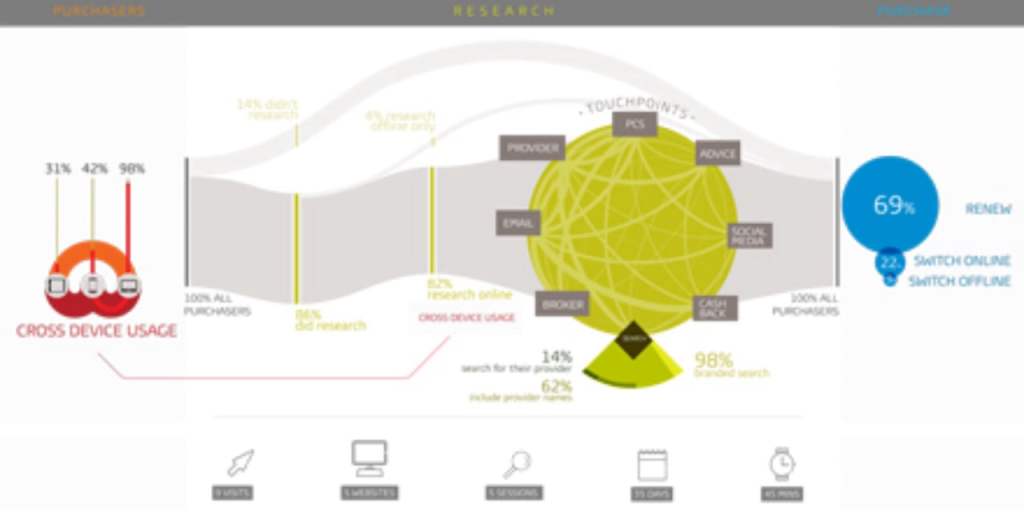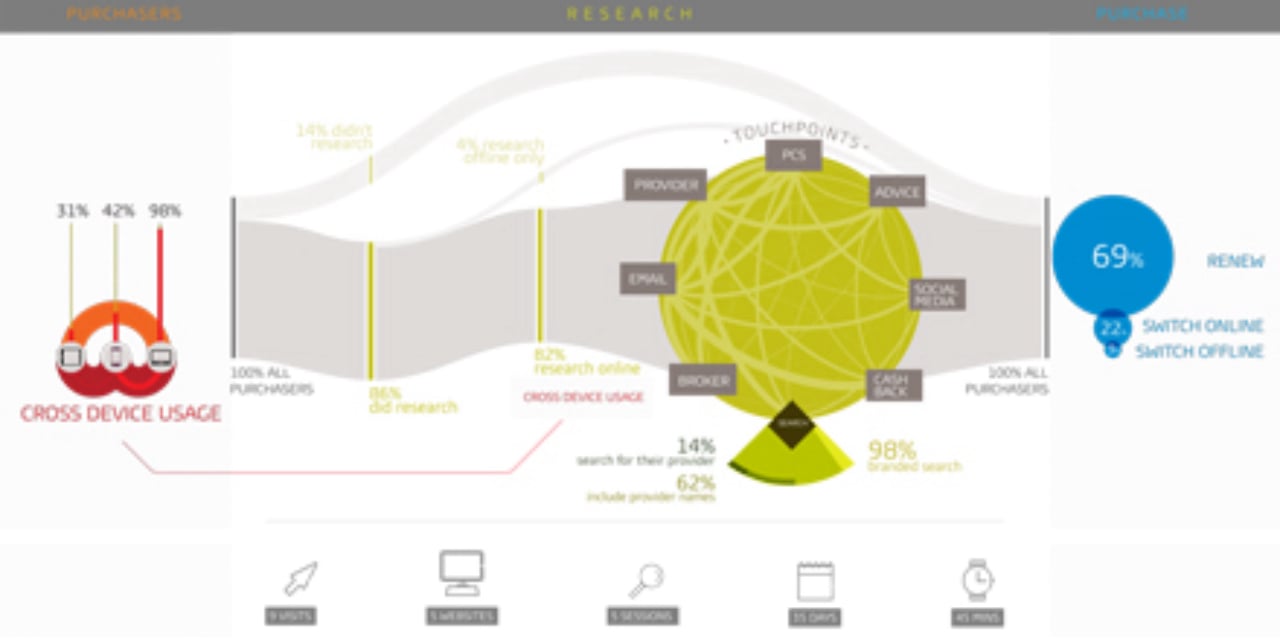Viewed by most people as a commodity, what role does the brand have for drivers in the car insurance purchase journey? We have carried out extensive research into the purchase journey of UK car insurance buyers and we’re sharing it in a series of articles. Here in our second article we look at where brands fit in the decision-making process. To read Part 1: The Research Phase click here >
Most people buy motor insurance annually, and don’t engage with providers unless they need to make a claim. There seems to be little to differentiate insurers and their policies beyond price, meaning there are few opportunities for brands to build consumer relationships. But if people bought on logic alone, price would be the only determining factor – and our research shows this is not the case.
Some people are driven primarily by price, but for others, brand reputation is so important that they will pay extra for it. Almost half of drivers (49%) agree it is worth paying more for a brand with a strong reputation. There is a clear relationship between attitudes to brand and channel: consumers who agree they ‘enjoy taking chances in buying new products’ are more likely to have bought their insurance online, perhaps taking a risk with an unknown brand they have discovered during the course of research. On the other hand, those who agree they ‘would rather stick with a brand I usually buy’ are more likely to have bought offline, perhaps reassured by talking directly to a provider or going through a broker. Further proof, if it were needed, of the importance of having a consistent brand across all consumer touchpoints.
Brand names key when researching via search engines
Brand is also critical to how consumers navigate when researching for car insurance. Over half of those doing online research use search engines, and the vast majority use search terms containing brand names; fewer than 10% use generic search terms such as ‘car insurance’. Those not using search engines go straight to destination sites, implying that they have a brand in mind, whether a provider, or a price comparison site (PCS). These people tend to head to their current policy provider or a brand they’ve seen advertised, usually on TV. 60% of switchers recall TV advertising useful to their research, as compared to only 20% of renewers, highlighting the importance and impact of brand advertising in this market.
But it isn’t all good news – there are threats from PCS and poor website optimization. Price comparison sites are particularly effective getting people to their sites during their search – backed by efficient SEO, SEM investments, online advertising including re-targeting and national TV campaigns in many instances, non-PCS provider brands are simply failing to stand out. In addition, whilst 62% of all searches include a motor insurance brand, less than two-thirds of these searches convert into a visit to the searched for brand’s website. Clearly there is a lost opportunity for many brands that needs to be addressed.
In summary
The car insurance market is price sensitive, but brand reputation is important for reassuring customers and building trust. And people definitely enter the process with brands in mind. It’s important for providers to understand where potential customers drop out of the online and offline purchase journey, and to adapt their SEO, advertising and communication strategies to have the best chance of success.
Click here to view infographic
For more information on this study contact our Digital expert Will Youngman will.youngman@gfk.com
Related articles:
HOW PEOPLE BUY CAR INSURANCE: PART 1: THE RESEARCH PHASE
HOW PEOPLE BUY CAR INSURANCE: PART 3: ARE RENEWERS LOYAL?





